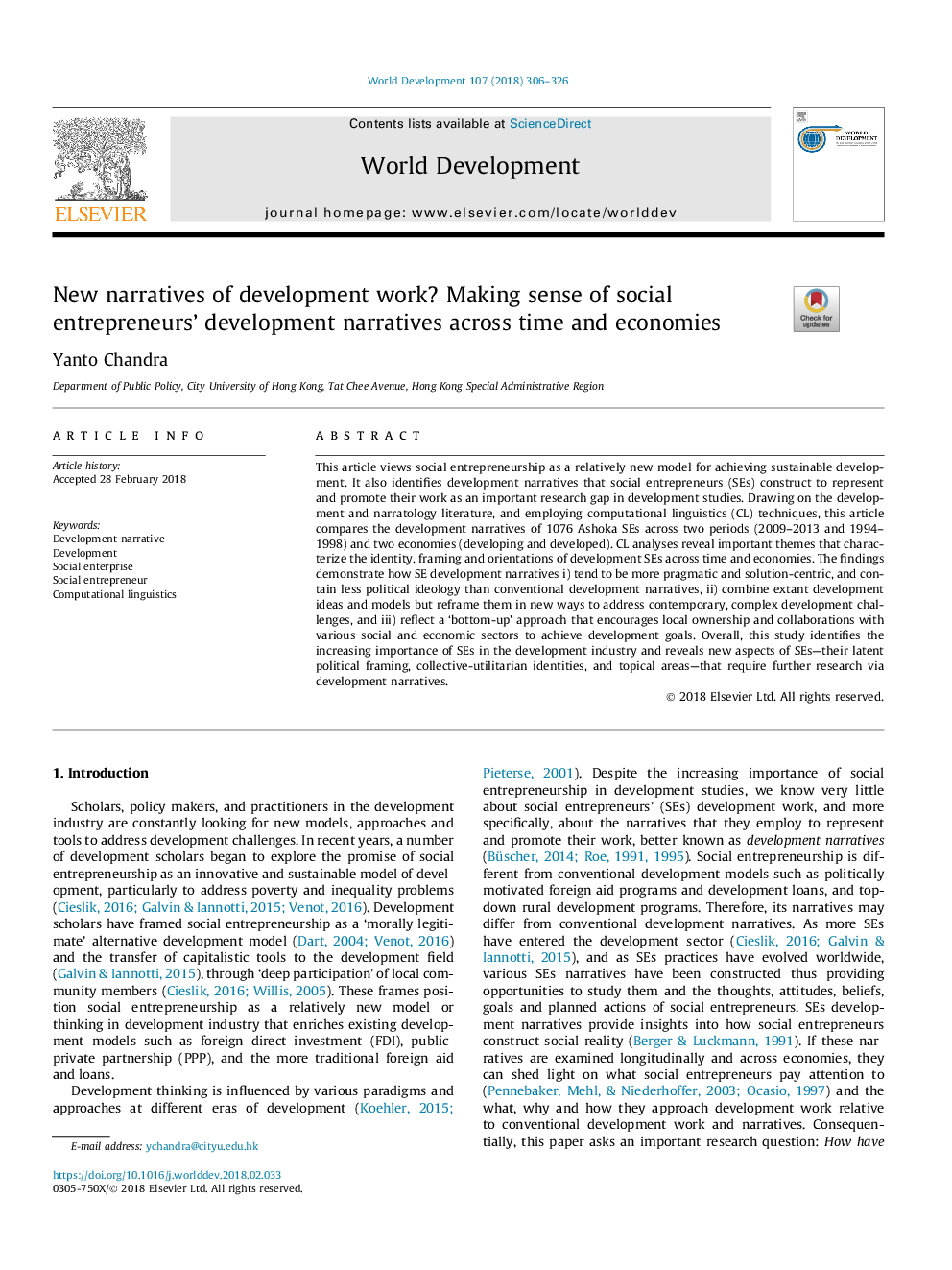| Article ID | Journal | Published Year | Pages | File Type |
|---|---|---|---|---|
| 7391871 | World Development | 2018 | 21 Pages |
Abstract
This article views social entrepreneurship as a relatively new model for achieving sustainable development. It also identifies development narratives that social entrepreneurs (SEs) construct to represent and promote their work as an important research gap in development studies. Drawing on the development and narratology literature, and employing computational linguistics (CL) techniques, this article compares the development narratives of 1076 Ashoka SEs across two periods (2009-2013 and 1994-1998) and two economies (developing and developed). CL analyses reveal important themes that characterize the identity, framing and orientations of development SEs across time and economies. The findings demonstrate how SE development narratives i) tend to be more pragmatic and solution-centric, and contain less political ideology than conventional development narratives, ii) combine extant development ideas and models but reframe them in new ways to address contemporary, complex development challenges, and iii) reflect a 'bottom-up' approach that encourages local ownership and collaborations with various social and economic sectors to achieve development goals. Overall, this study identifies the increasing importance of SEs in the development industry and reveals new aspects of SEs-their latent political framing, collective-utilitarian identities, and topical areas-that require further research via development narratives.
Related Topics
Social Sciences and Humanities
Economics, Econometrics and Finance
Economics and Econometrics
Authors
Yanto Chandra,
